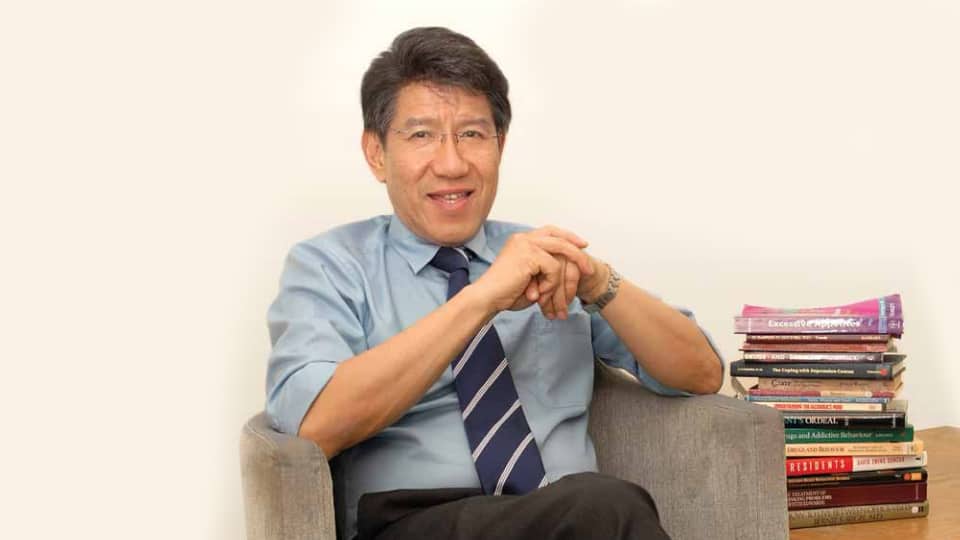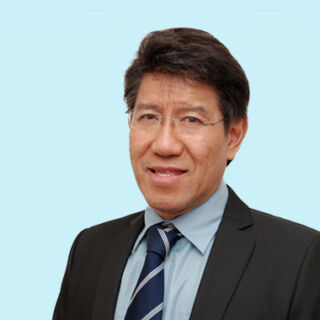Upclose: Dr Lim Yun Chin

UpClose with Dr Lim Yun Chin, Specialist in Psychiatry & Consultant Raffles Counselling Centre
Dr Lim, please tell us how you came to be in your shoes today.
I’ve been a doctor for the past 36 years or so, 15 years in Woodbridge Hospital (not as a patient) and the last 20 years in Raffles. 40 years ago, there weren’t many vocational options that a school leaver had. Therefore professions like medicine and law were considered the norm. When I did my posting in Psychiatry, I realised that I had always been fascinated by human behaviour, their perception, motivations etc. Therefore, I felt pursuing psychiatry would enlighten me. It also allowed me to learn about other aspects of the human condition which I later realised I was interested in.
It’s obvious then, that you’ve been in this line for a while. Could you tell us how different is psychiatry from other fields of medicine?
When I first entered the field in 1977, psychiatric illness was defined as an illness of “no hope or recovery”, once a diagnosis had been reached. You can see how discouraging and demoralising this was. It was no wonder other doctors shunned the discipline and psychiatrists were often regarded as “chronic” as their patients.
However, with the introduction of new medical technologies and disciplines such as the geneticist, neuroscientist, and the neuro-imaging specialist, we have come a long way in understanding mental conditions. New research now show that if we intervene early with new therapies such as cognitive behavioural therapy, we can even prevent or delay the onset of mental illness. Drugs might not be necessary. After all, epidemiological data in Singapore showed that one in five people suffers from some form of mental problems. If you want to know who they are just look at four of your friends and if they’re OK, then you’re probably the one!
What does it take to be a psychiatrist, delving into others’ minds?
When I first entered the field in 1977, psychiatric illness was defined as an illness of “no hope or recovery”, once a diagnosis had been reached. You can see how discouraging and demoralising this was. It was no wonder other doctors shunned the discipline and psychiatrists were often regarded as “chronic” as their patients.
The most important tool for a mental health practitioner is empathy. It is through empathy that one makes an effective connection. Generally women are endowed with more empathy. Just look at women in conversation, expressing not only thoughts, but also emotions and feelings. Unfortunately, the male’s XY chromosomal configuration is not so sophisticated in this domain. Empathy can only grow from increasing our own “self-awareness”. This is not easy and must be trained. We are often the last person to know our own feelings, emotions and motivation while others recognise them a mile away. How can we help others if we are oblivious to what is going on in ourselves? I think empathy can be both inborn as well as acquired through training and supervision.
What does it take to be a psychiatrist, delving into others’ minds?
You refer to one of the more challenging aspects of being a psychiatrist. We call it defining boundaries in a therapeutic relationship. This boundary extends to doctors of all specialties and their patients, not just psychiatrists. Being sensitive to this ethical boundary helps doctors to be objective and appropriate in their dealings with patients while preventing abuse and exploitation.
I believe this same boundary also helps doctors protect themselves from the negative emotions patients frequently display as well. Doctors should be careful not to find themselves taking roles they should not, for eg. Being the primary caretaker, surrogate parent, spouse etc. Doctors who forget or ignore these boundaries will find themselves vulnerable to professional incompetency or sucked into a bottomless pit of despair, resentment and burnout. We are most susceptible when our patients’ narratives remind us of our own unresolved issues and conflicts.
How do you keep yourself going Dr Lim?
When one starts out pursuing a vocation you realise that it was a career only after many years later. When you sense that you are on the path of a “career” you feel new energy feeding into your system and that’s “addictive”. I cannot stay stagnant because to do so is to go backwards. Being a perennial student of human behaviour also generates a constant thirst and hunger for new understanding within me.
Before we go, could you tell us how you keep your mental health in check?
Hey I am the preacher here, man. I am not supposed to practise what I preach. But seriously, healthy living is to be committed to rebalancing one’s life daily. Just like the formulation of a pie chart we demarcate our energy and commitment to at least three major segments:
Self-care comprises of physical self-care like parking my car on the 6th floor and committing to climbing up the steps to the 13th floor office. Relational self-care such as the commitment to be invested and connected to people close to you. Spiritual self-care embracing hope, faith, charity etc.
Career or vocation would comprise of our energy, commitment and time to our life’s work and finding meaning to our pursuit.
Caring for others reminds us that we have commitment to reach out to others giving our time and talent. I wish we could have 33.3% for each segment in terms of time and energy but in reality the dynamics change rapidly. Hence, rebalancing is the key to keeping my mental health in check, well at least for me.



